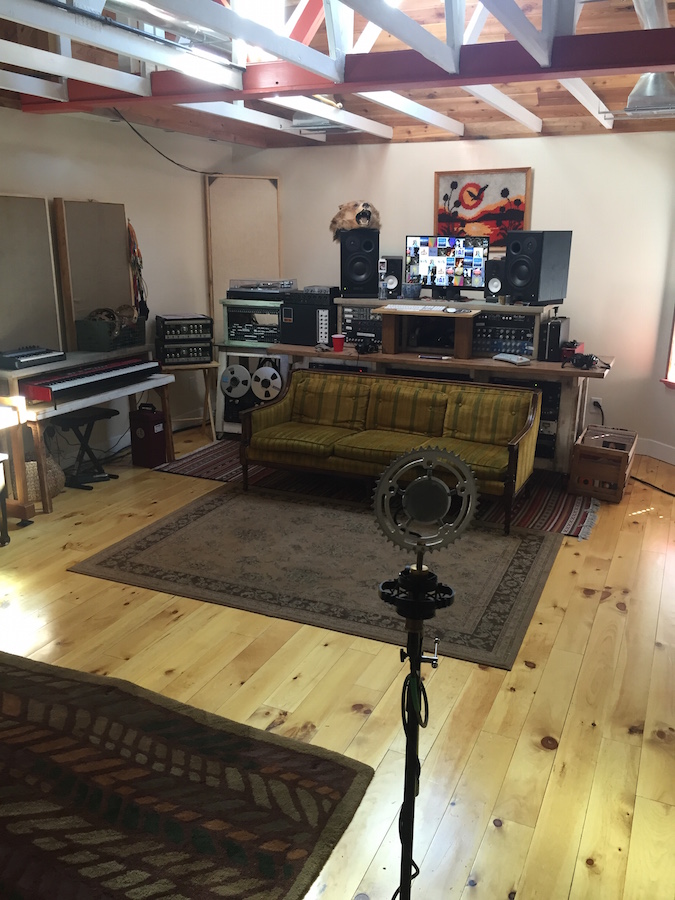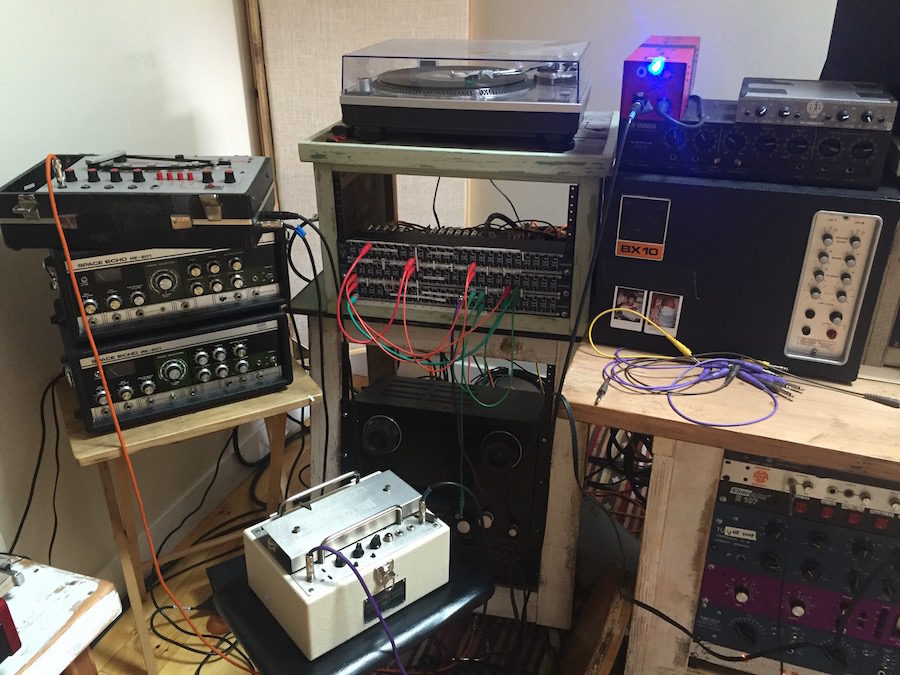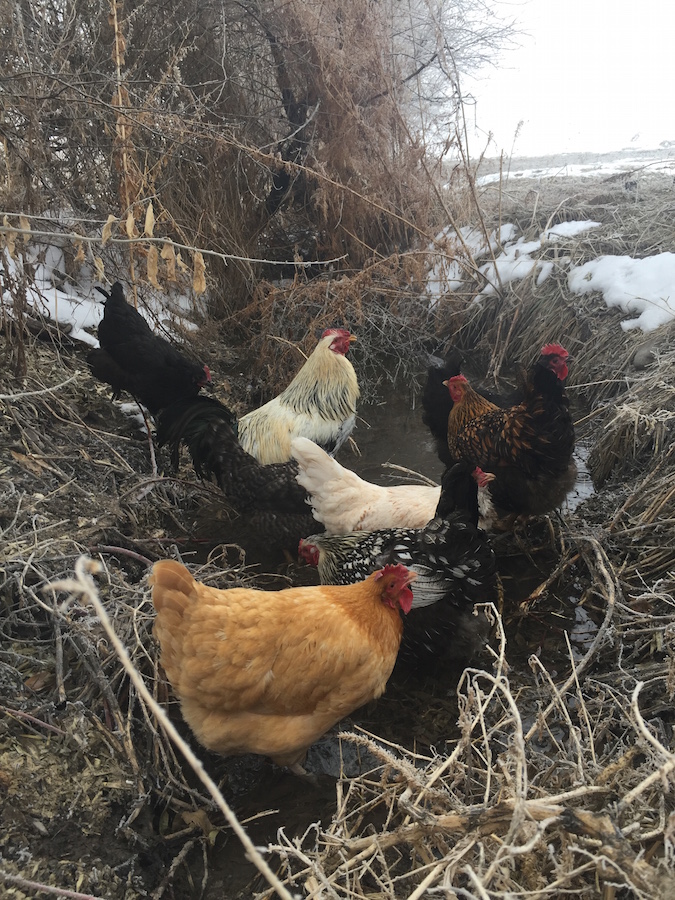Joshua James: From #1 Folk Songwriter to Stay-At-Home Producer

Singer and Songwriter Joshua James hit #1 on the iTunes Folk chart early in his career, and has since become an active producer, working out of his own home studio in Utah.
Joshua James is a folk singer and songwriter, originally from Nebraska, who now lives and works in American Fork, Utah.
James has steadily made a name for himself over the years not only as an artist, but as a producer, working out of a small studio in his home that sits on a quarter-acre farm which he has quaintly dubbed “Willamette Mountain“.
I had the pleasure of working with James earlier this year and recently caught up with him to ask a bit about how he works, where he came from, and more importantly, where he’s headed.
Your music career began with songwriting and performing. How did you get started on that side of the craft?
Honestly I didn’t really get started until after high school, maybe when I was 21? I wish I had played music as a kid more, just because I would be much more versed in theory.
In high school, I thought I was tortured or whatever and wrote a lot of poetry, but didn’t start putting that to music until I moved to Utah and bought a guitar. Once I started playing and singing, the whole concept, the mysticism, of songwriting started to vanish and I thought “oh look, I can put this chord with this chord, now I’ve got a melody, this sounds like a song.” And then I did it again, and I started writing a lot of songs.
Then, while I was at [Utah Valley University] studying nursing, this guy in Los Angeles found my Myspace and sent me a message, and I ended up calling him, which led to me flying out there and recording a record with him—on his dime. We released the record about 4-5 months after we recorded it, and it went to #1 on the iTunes Folk chart for like 3 months.

Joshua James’ home setup allows him to stay close to family. (And provides access to some exceptionally cheap, though green, studio musicians.)
That’s pretty lucky!
People ask me all the time how to “make it” in music, and I just don’t know. I didn’t do the normal thing. My way was totally luck. I know tons of musicians who are incredibly talented that will never see any fame or success. We were selling tens of thousands of records and it was completely just me and a guy from LA.
So there was no label help?
None. After that though, I hooked up with a booking agent out of Nashville so that got me touring, and I quit school to pursue music. I went from these really bad tours driving 8 hours and getting $50 a night to play at like, a pizza place, to opening up for guys like David Gray, Ani DiFranco, and John Mayer.
We toured for a long time and we almost signed to Atlantic, and almost signed to Capital, and then American, and every time a record contract would come across I would just feel like, “No man, let’s just do it ourselves, we’ve been doing it this long”.
So you’ve never labeled up since then?
Never. I own all of my own masters. Which really is becoming less and less a thing—but it used to be a big deal. So I get all of my own royalties and everything.
So what made you switch over to producing records instead of writing your own material?
Honestly, it started with friends in other bands seeing that I had a couple mics of my own and just asking if we could do a demo.
Then I bought some more gear, and I kept getting requests, and then when I decided to make this space in my home, I knew I wanted to do it for real. So I went at it for real to make an awesome space where people can come in and feel like they are there to create.
Do you feel like the people you work with have more respect for you because you were a successful artist first?
I don’t know. I think I do get a lot of work because I was an artist first. That’s honestly most of my work.
The hope is that if a [producer] is comfortable with this sound or that sound [on his own record] that the [client] likes, then maybe he will steer [your] music the same way. I’m the same way. I want to work with someone I know has a similar vision.
Do you prefer writing for yourself, or writing with others for their records? And do you have a different outlook on the two or is the approach the same?
I don’t think I have a preference. But it’s a totally different approach for me.
Oftentimes when it comes to co-writing, there is an idea already set up. They usually have a skeleton of a song. So you are already confined somewhat to a structure, and you know what they are trying to say.
So, for better or worse you are already confined and have to work within that, whereas when you write for yourself you start with nothing.
I don’t really know which is harder. I am pretty quick with co-writing, at least when it’s in a fast-paced session. I try not to overthink it to much. I mostly try to improve what is already there, instead of completely changing it. I try to find the best parts, the strongest parts of the song, and just enhance it.

Evan Coulombe, a regular guitarist in the studio band Joshua James assembles for his clients, accompanies an acoustic player.
Which would you say is your “Main Gig”? Your career as an artist or your work as a producer?
Oh man, that’s a tough one.
I would say it’s the artist side. With the way the music industry has gone the money has slowed a lot, but I think that I still feel creatively more invested as an artist. I really try to find time to write and continue with that side of things.
I didn’t really set out to produce, it just kind of happened. But as far as time and money go I would say I’m still more on the artist side, but maybe only 60/40.
Are you comfortable talking money a little bit?
Of course.
Is that 60/40 split because you consistently make more money as an artist then? Or has the studio taken over where the music has slowed?
It’s hard to say because it’s so intertwined. I don’t even know to be honest. I used to make a decent amount as an artist, but it’s getting less and less because of the decline in record sales.
I used to be able to make money off iTunes—good money—and now it’s like pennies to the dollar compared to what it used to be. And I don’t make that much producing either, but I do make decent money. It helps that I don’t have to rent a space of course, where the studio is in my home.
Overhead is always the killer for sure. Do you feel like you have a specific production style that best for you in your space?
It’s kind of whatever hits me to be honest. I work with whatever is there first. I often like taking the drums in a totally different direction than I would have if I were just some contemporary producer. You know like, “let’s throw in a samba groove for this song”. Something completely different than what you expect. I always find that kind of thing still ends up feeling natural for some reason, and it always gives it a unique flavor instead of the normal expected rhythm.
Part of it could be that when you start writing things that are so expected or obvious it starts to feel faked—or feel like it was trying to be this certain thing, instead of being its own piece of music.
Or it feels like you had no better ideas. I have artists say “I don’t know man, I don’t know.” I hear it a lot. Like I will throw flutes, like I’ll do a mellotron flute sample on a part and they go: “I don’t know man, I don’t know how I feel about that.” And then two days later: “Dude I love those flutes so much.” It’s because it made it unique—it made it different than you would expect.
I think it’s about not putting yourself in a corner sometimes. You don’t have to do something specifically because it’s expected from your genre. I like to keep it weird. I’m not doing things that are crazy by any means, but I am trying to get the weirdest sounds that I can.
If you were speaking to an artist today who is thinking of taking the same career path and switching to producing, is there any advice that you could give them?
Kind of what we just talked about: Have something to offer, something that is unique to you. It might not be completely unique, but make them feel like it is—like you have a unique vision on the way their art should be.
For a lot of engineers, I feel like that’s a lost thing. A lot of them are just in there with some gear and they are pressing record. You have to be invested in the music, and the way that it’s created.
Garion Wells is a producer and engineer who lives in Salt Lake City, Utah.
- Another view of James’ home studio, Willamette Mountain.
- Equipment racks at Willamette Mountain.
- Locating your studio in the mountains of Utah has its perks.
- And comes with some interesting neighbors.
- Food and farming are passtimes at Willamette Mountain.
Please note: When you buy products through links on this page, we may earn an affiliate commission.













